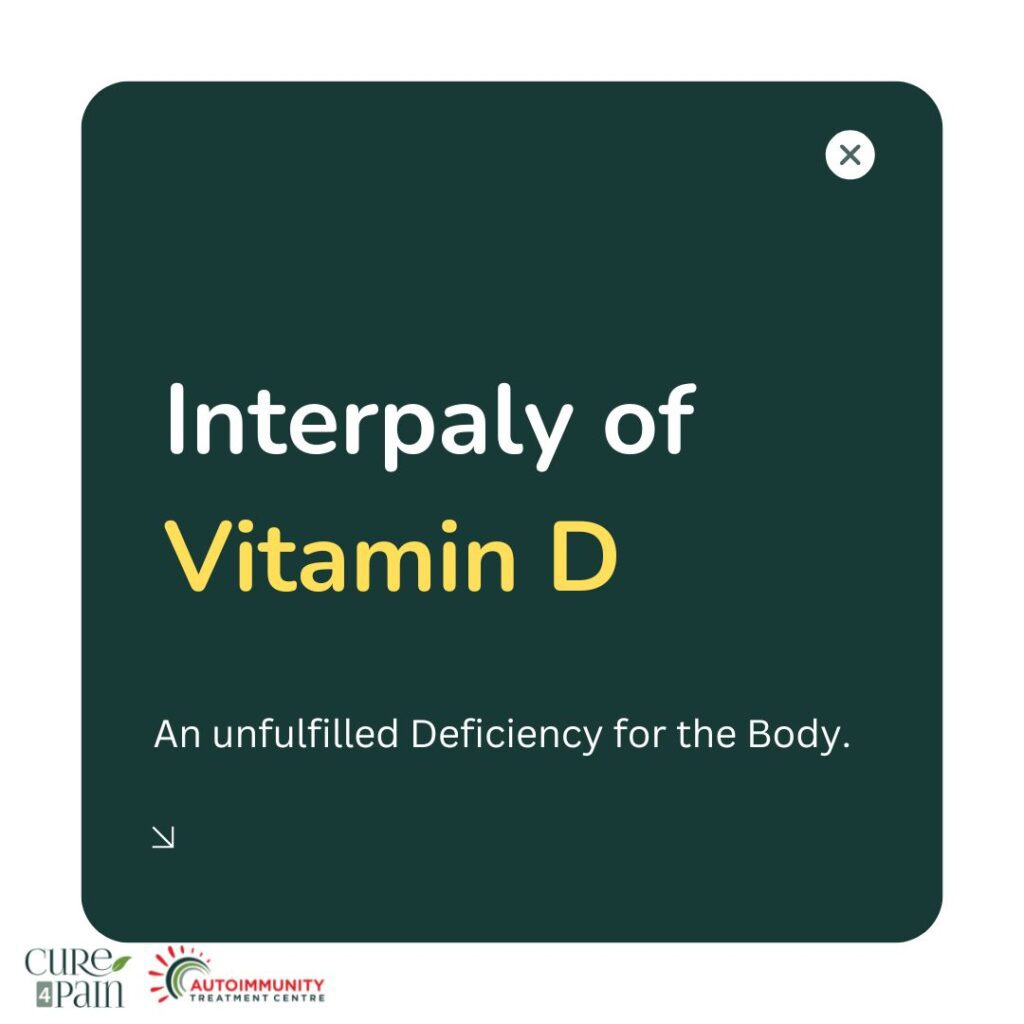Autoimmune diseases arise when the immune system, designed to protect against infections, turns against the body’s own tissues, causing chronic health conditions like psoriasis, psoriatic arthritis, and other disorders. While the exact causes of this dysregulation remain complex, research has increasingly highlighted the pivotal role of Vitamin D in immune regulation. Deficiency in Vitamin D levels or resistance to its effects can lead to unregulated immune activity, potentially triggering the onset and progression of autoimmune diseases.
Vitamin D: A Key Player in Immune Balance
Vitamin D, a fat-soluble vitamin, is integral to maintaining immune system harmony. It influences both innate and adaptive immunity by modulating the function of immune cells, including T cells, B cells, and macrophages. This regulation is achieved through Vitamin D’s interaction with the Vitamin D receptor (VDR), found on many immune cells. When Vitamin D levels are adequate, the immune system is kept in check, reducing the likelihood of self-attack.
Studies published in Nature Reviews Immunology reveal that Vitamin D supports the development of regulatory T cells (Tregs), which play a critical role in preventing autoimmune responses. A lack of Vitamin D disrupts this balance, elevating pro-inflammatory cytokines while diminishing Treg activity. This imbalance contributes to immune system overactivation, a hallmark of autoimmune diseases.
The Link Between Low Vitamin D and Autoimmunity
A growing body of evidence connects Vitamin D deficiency with a higher risk of autoimmune diseases. Research in the Journal of Clinical Endocrinology & Metabolism indicates that insufficient Vitamin D levels are associated with an increased likelihood of conditions like multiple sclerosis, rheumatoid arthritis, and type 1 diabetes. These findings underscore the critical role of Vitamin D in immune modulation.
For psoriasis and psoriatic arthritis specifically, low Vitamin D levels correlate with greater disease severity. Patients with Vitamin D deficiency often experience more pronounced symptoms, including extensive skin lesions and heightened inflammation, as documented in the Journal of Investigative Dermatology. These results emphasize the importance of optimizing Vitamin D levels to manage autoimmune diseases effectively.
Vitamin D Resistance: A Hidden Challenge
Beyond deficiency, some individuals experience Vitamin D resistance, where the body struggles to utilize available Vitamin D effectively. This resistance often stems from genetic mutations in the VDR gene, impeding the body’s ability to regulate immune activity properly. Research published in the Journal of Autoimmunity identifies VDR gene polymorphisms as risk factors for diseases like systemic lupus erythematosus, Crohn’s disease, and psoriasis.
Vitamin D resistance complicates treatment, as standard supplementation may not sufficiently regulate immune function in these cases. For patients facing such challenges, particularly in regions like Mumbai where Vitamin D deficiency is common, personalized approaches are crucial. Addressing both deficiency and resistance can significantly reduce the risk of developing or worsening autoimmune diseases.
Steps Toward Effective Autoimmune Management
The interplay between low Vitamin D, resistance, and immune dysregulation highlights the need for a comprehensive approach to autoimmune disease management. Optimizing Vitamin D levels through tailored therapies can help regulate immune responses and mitigate disease progression. For patients in India, particularly in cities like Mumbai, consulting healthcare providers familiar with advanced protocols such as the Coimbra Protocol can be transformative.
If you’re seeking expert guidance, finding the best doctors for psoriasis treatment and autoimmune disease management is essential. Clinics specializing in integrative and orthomolecular medicine, like Cure4Pain Clinic India, can provide personalized care to help manage conditions sustainably.
References:


